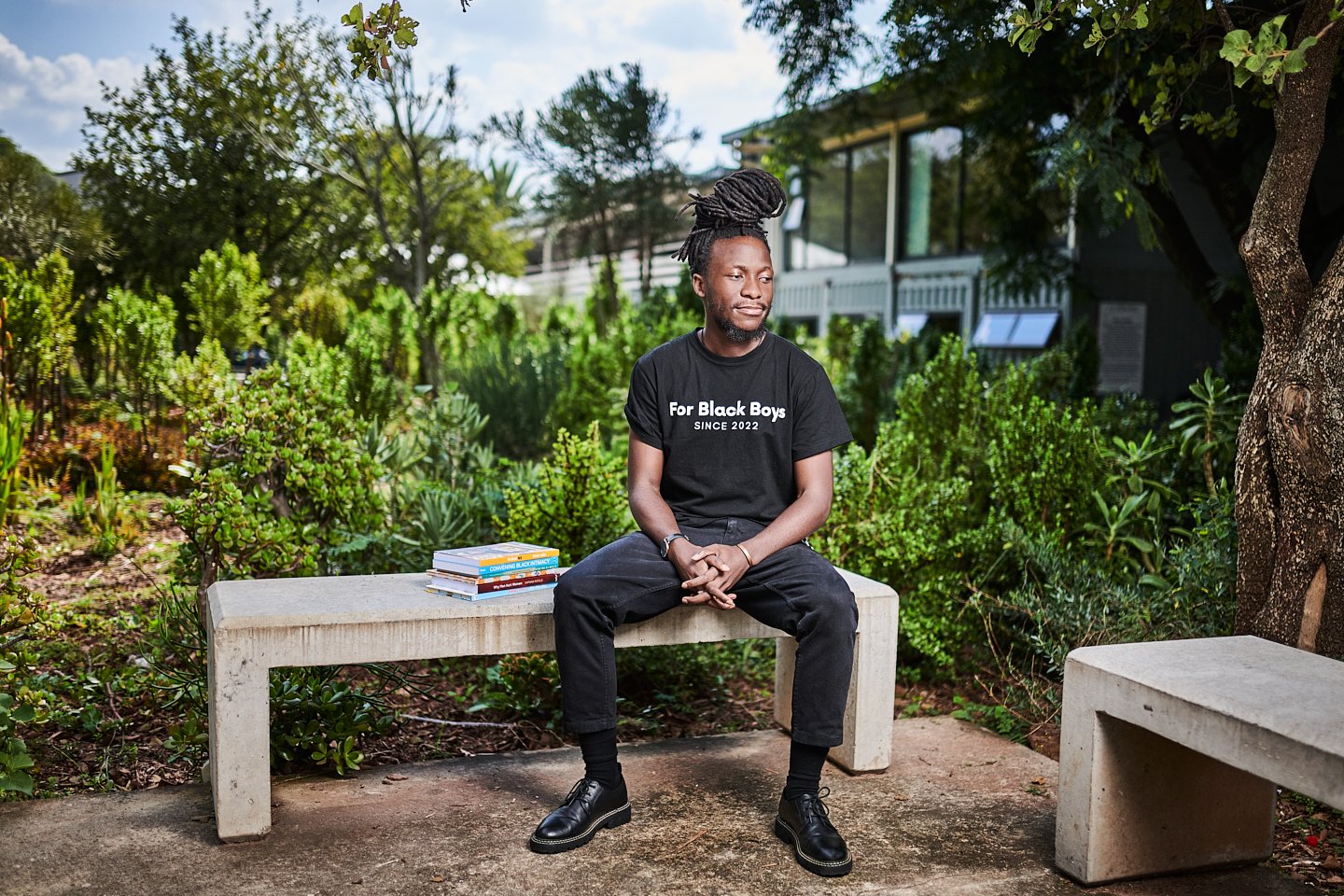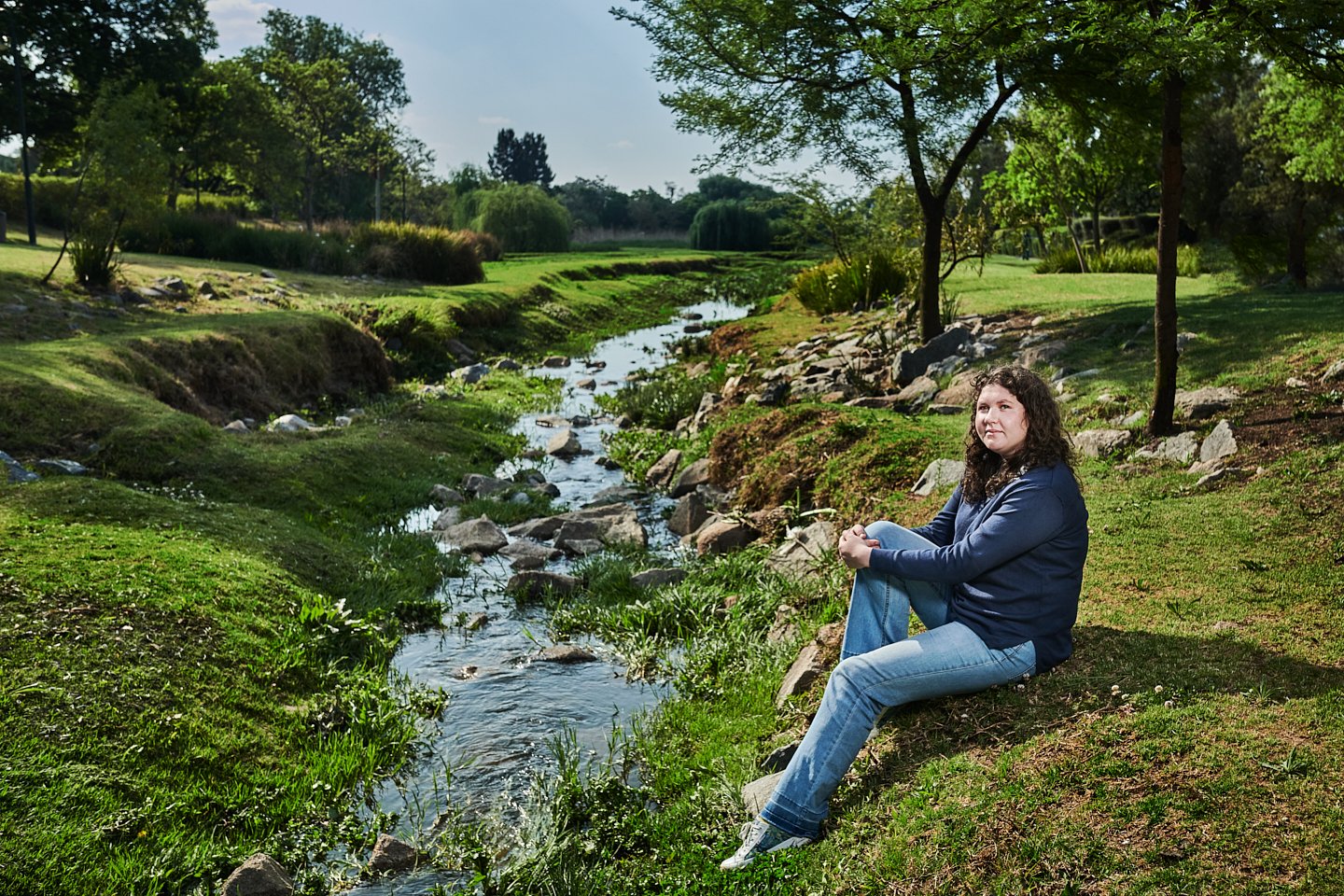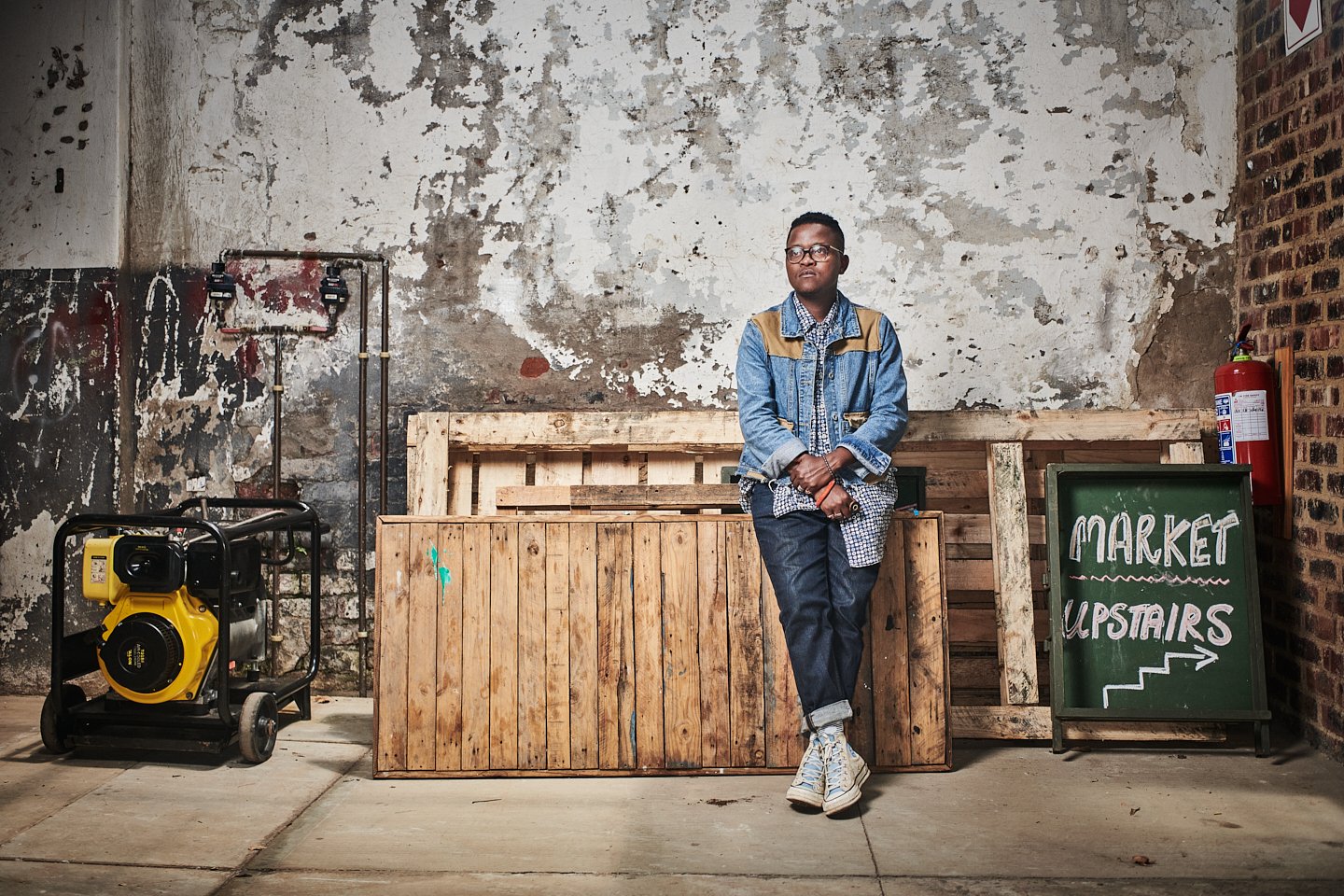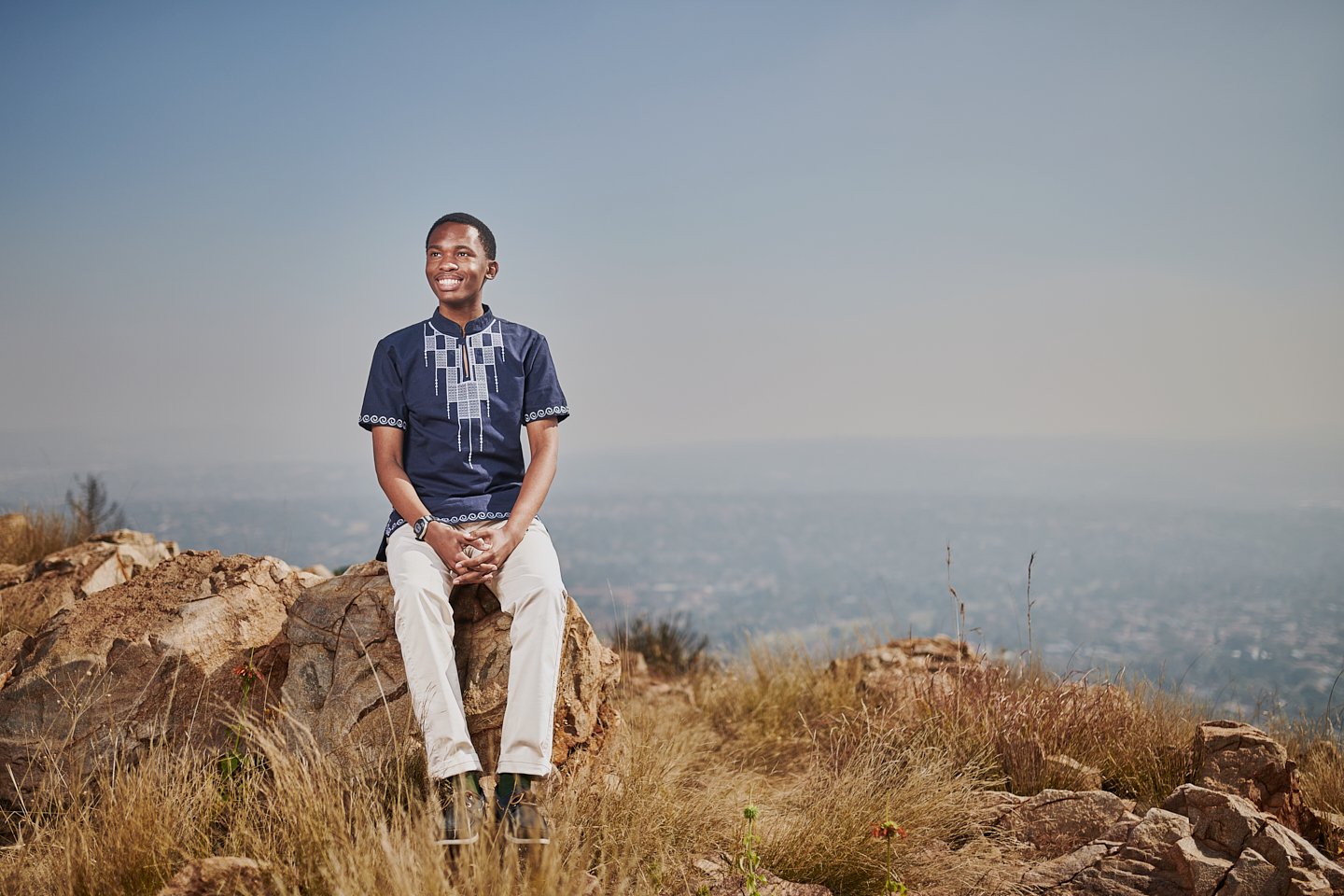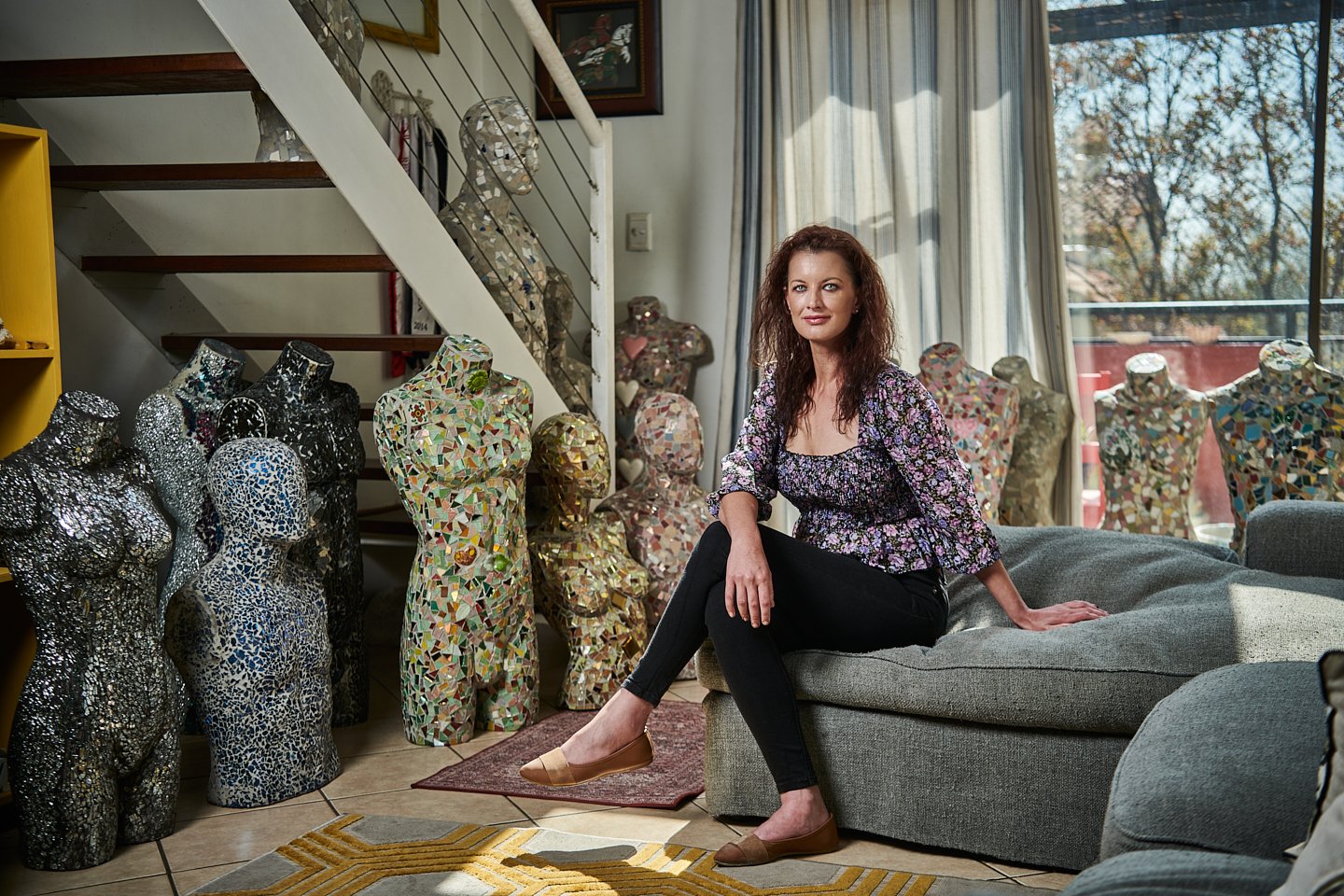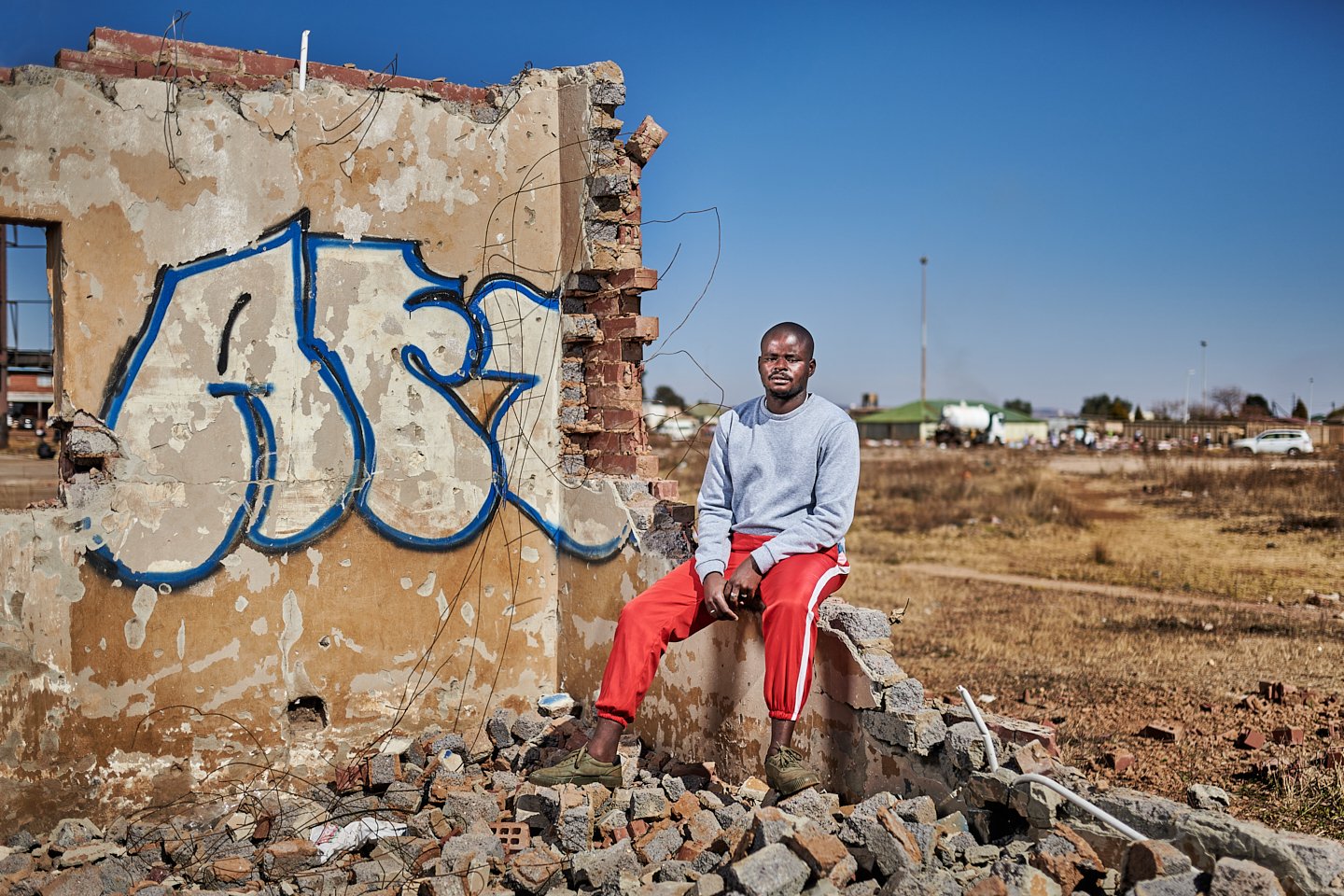Coral Vinsen
SIX DECADES OF FIGHTING FOR HUMAN RIGHTS
Coral Vinsen at home in Durban North © Thom Pierce 2023
At the age of 92, Coral Vinsen has recently completed the Faith Leaders Gender Transformation Programme, passing with distinction. As a long-time activist, she will use the knowledge she has gained to fight the scourge of Gender-Based Violence. This is just another step in her 64-year-long journey as an advocate for the rights of every person in South Africa.
In 1956 when a major Polio outbreak occurred, Coral trained in the relatively new study of virology. Thereafter, she was put in charge of the first Virology Laboratory in Durban. When she married John Vinsen a year later, she had to resign as the SA state did not employ married women. As there was then no qualified staff to staff the lab, it was closed down and she was not able to work as a virologist again for another 23 years when a new lab was opened in 1980.
Wishing to be part of building a nonracial society Coral and her husband joined the progressive party at its inception in 1959. When she was elected the Chair of the Women's group, Coral invited women from other racial groups to address her members. It was in meeting people of other races that she started to fully understand what was happening in the country.
“Working with people beyond the white community makes a big difference. People need to reach out, not in a charity way, but in an equal way to treat other people with dignity. Having friends from other race groups has made a major difference in my life.”
She was one of the founding members and treasurer of the Durban Detainees Support Committee (DESCOM) which met every Monday from its formation in 1981 until it was banned in 1988. At the time, the government had implemented legislation that meant they could detain people for up to 90 days and subsequently 180 days without trial. The committee held the government accountable for the way that people were treated whilst being detained, to expose if people were being tortured and to support and protect them once they were released from detention.
At the dawn of democracy in 1991, Coral, together with a group of Durban anti-Apartheid activists, formed the Durban chapter of Amnesty International. They all wanted to make a tangible change within South Africa but needed the backing and structure of an external organisation that could train them and provide them with the tools they needed to be most effective in upholding human rights.
Coral is one of the longest-serving members of Amnesty International in South Africa. 32 years after founding it, she is a co-chair of the Durban chapter, the only surviving adult chapter in South Africa.
Over the decades, Coral's work has spanned many different disciplines, most notably in her passion for the promotion and support of art and human rights activism, something that was born out of the necessity to communicate at a time when books, films and news were being banned or heavily censored.
These days food security is one of her most effective forms of activism, teaching people to grow their own food with the aim of promoting self-sustainable, responsible practices to combat the growing threat of hunger.
“Activism takes many forms. There are little things that happen all the time. I teach people to grow vegetables organically, that’s also part of my human rights activism. There are lots of different aspects of the work that you can do that link to human rights.“
From anti-torture campaigns to teaching other people to grow their own healthy food, Coral is clear about the fact that Actionism can be many things, none necessarily more important than the other, but all contributing to making a better world for all regardless of race, gender, or faith.
This story was created in partnership with Amnesty International South Africa.



